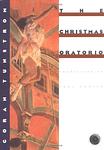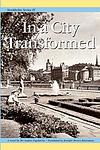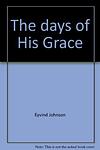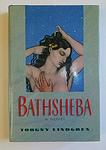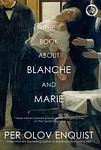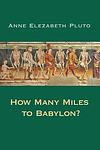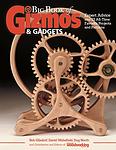The Greatest Swedish, Irish "Historical fiction, Fiction" Books Since 1950
Click to learn how this list is calculated.
This list represents a comprehensive and trusted collection of the greatest books. Developed through a specialized algorithm, it brings together 300 'best of' book lists to form a definitive guide to the world's most acclaimed books. For those interested in how these books are chosen, additional details can be found on the rankings page.
Genres
Historical fiction is a genre of literature that combines fictional stories with real historical events, settings, and characters. These books often take place in a specific time period and are based on research and factual information, but also include imaginative elements to create a compelling narrative. Historical fiction allows readers to experience the past in a unique and engaging way, while also providing insight into the social, cultural, and political issues of the time.
Countries
Date Range
Reading Statistics
Click the button below to see how many of these books you've read!
Download
If you're interested in downloading this list as a CSV file for use in a spreadsheet application, you can easily do so by clicking the button below. Please note that to ensure a manageable file size and faster download, the CSV will include details for only the first 500 books.
Download-
1. Amongst Women by John McGahern
"Amongst Women" is a novel that tells the story of Michael Moran, a bitter, aging Irish Republican Army (IRA) veteran, and his relationships with his wife and five children. The narrative explores themes of family, power, love, and the struggle between freedom and control. Moran's domineering personality and the effects of his past experiences in the IRA have a profound impact on his family, shaping their lives and relationships in complex and often destructive ways.
-
2. Barabbas by Par Lagerkvist
This novel tells the story of Barabbas, the man who was pardoned instead of Jesus Christ, according to the New Testament. After being released, Barabbas grapples with his newfound freedom and the guilt of being spared at the expense of Jesus. As he witnesses the rise of Christianity and the profound impact Jesus' teachings have on those around him, he struggles with his own beliefs and the meaning of his existence. The narrative explores themes of faith, redemption, and the human condition.
-
3. The Christmas Oratorio by Göran Tunström
"The Christmas Oratorio" is a poignant story set in a small Swedish town, revolving around a boy who loses his mother and his relationship with his silent, grieving father. The narrative is deeply embedded in music, specifically Bach's Christmas Oratorio, which becomes a source of solace for the boy. The tale is a rich tapestry of love, loss, and the healing power of music, exploring the deep emotional bonds between father and son, and the transformative power of art.
-
4. Simon and the Oaks by Marianne Fredriksson
"Simon and the Oaks" is a poignant tale set against the backdrop of World War II, depicting the life of a young Swedish boy, Simon, who comes from a working-class family but dreams of a world beyond his own. His life changes when he befriends Isak, a boy from a wealthy Jewish family fleeing from Nazi Germany. The book explores their friendship, the stark contrast between their worlds, their shared love for literature and music, and the impact of war on their lives. It also delves into themes of identity, love, loss, and the enduring power of human spirit.
-
5. Strumpet City by James Plunkett
"Strumpet City" is a historical novel set in Dublin, Ireland, during the 1913 Dublin Lockout. The narrative follows a diverse group of characters from different social classes as they navigate the struggles and hardships of life during this tumultuous time. The book vividly depicts the poverty, exploitation, and political unrest of the era, offering a rich and detailed portrait of Dublin and its people in the early 20th century.
-
6. Good Behaviour by Molly Keane
"Good Behaviour" is a darkly humorous and compelling novel that delves into the dysfunctional lives of the St. Charles family. Set in the early 20th century, the story is narrated by Aroon, the youngest daughter, who chronicles her family's eccentricities, secrets, and the complex dynamics that shape their relationships. As Aroon navigates her way through a world of privilege and societal expectations, she grapples with her own desires and the consequences of her actions. With sharp wit and keen observations, the novel explores themes of love, betrayal, and the lengths people will go to maintain appearances.
-
7. The Bitter Glass by Eilís Dillon
"The Bitter Glass" is a historical novel set in Ireland during the 1920s, a time of political upheaval and civil war. The story follows the life of a young man who becomes embroiled in the conflict, despite his initial reluctance. As he navigates through the complexities of love, loyalty, and patriotism, he is forced to confront the harsh realities of war and the profound impact it has on individuals and communities. The book offers a poignant exploration of human nature, the struggle for freedom, and the cost of political strife.
-
8. Brooklyn by Colm Tóibín
The novel tells the story of a young Irish woman, Eilis Lacey, in the 1950s who, unable to find work at home, is sent to Brooklyn by a helpful priest where she builds a new life. She finds work, studies to become a bookkeeper, and falls in love with an Italian plumber named Tony. However, a family tragedy forces her to return to Ireland, where she must choose between her new life in America and her old life at home.
-
9. Stockholm series by Per Anders Fogelström
The "Stockholm series" is a historical fiction saga that spans over a century, chronicling the lives of various generations of families living in Stockholm, Sweden. The narrative begins in the mid-19th century and ends in the 1960s, providing a detailed and vivid picture of the city's transformation during this period. The series explores themes of love, poverty, wealth, class struggle, and social change, offering an immersive view of Stockholm's history through the personal stories of its characters.
-
10. The Days of His Grace by Eyvind Johnson
"The Days of His Grace" is a historical novel set in the 14th century, during the time of the Hundred Years' War between France and England. The narrative follows a Swedish nobleman who becomes involved in the political and religious conflicts of the era, while also dealing with his own personal struggles and relationships. The book is a complex exploration of power, faith, and the human condition, reflecting on the moral and ethical dilemmas faced by individuals in times of war and upheaval.
-
11. Samuels bok by Sven Delblanc
"Samuels bok" is a historical novel set in 18th century Sweden, focusing on the life of Samuel, a Jewish man who immigrates to Sweden to escape persecution in his home country. The book explores his journey and struggles as he navigates through a society filled with prejudice and discrimination, while also trying to maintain his faith and cultural identity. The story is a vivid portrayal of the harsh realities faced by immigrants and minorities, providing a powerful commentary on social and religious intolerance.
-
12. Langrishe, Go Down by Aidan Higgins
"Langrishe, Go Down" by Aidan Higgins is a poignant and introspective novel that delves into the lives of the Langrishe sisters, Imogen and Helen, as they navigate their way through the complexities of love, loss, and longing in rural Ireland. Set in the 1930s, this beautifully written narrative explores the sisters' turbulent relationships with the men in their lives and their struggle to find their own identities amidst societal expectations. With vivid descriptions and emotional depth, the novel captures the essence of a bygone era and offers a profound exploration of the human experience.
-
13. Bathsheba by Torgny Lindgren
"Bathsheba" is a dark and humorous tale set in a remote Swedish village plagued by a mysterious illness. The narrative follows the village's school teacher who, despite being the only one unaffected by the disease, is ostracized by the community. The arrival of a beautiful and enigmatic woman named Bathsheba stirs up the village, particularly the teacher who becomes infatuated with her. The novel explores themes of love, lust, faith, and the human condition, encapsulated in a captivating and surreal narrative.
-
14. A Belfast Woman by Mary Beckett
The book is a poignant collection of short stories that delve into the lives of women from Belfast, Northern Ireland, during the tumultuous times of the Troubles. Through a series of intimate narratives, the author explores the complex emotions, daily struggles, and the resilience of women as they navigate a society riven by political conflict. The stories offer a nuanced portrayal of the female experience, highlighting themes of family, love, loss, and the quest for personal identity against a backdrop of violence and social upheaval.
-
15. Days Without End by Sebastian Barry
"Days Without End" is a historical fiction novel that follows the life of an Irish immigrant who enlists in the U.S. Army in the 1850s. The protagonist's experiences include fighting in the Indian Wars and the Civil War, as well as falling in love with a fellow soldier. The novel explores themes of identity, love, and survival in a brutal and unforgiving era of American history.
-
16. The House Of Splendid Isolation by Edna O'Brien
The book tells the story of an old woman living in isolation in a grand but dilapidated house in rural Ireland. Her quiet life is disrupted when a fugitive on the run from the law invades her home. As she's forced to coexist with him, she begins to reflect on her own past and the history of the Irish people, leading to a complex exploration of themes such as loneliness, regret, and the struggle for national identity.
-
17. The Boy in the Striped Pyjamas by John Boyne
This novel follows the story of a young boy who moves from Berlin to a house near a concentration camp during World War II. Unaware of the grim reality of his surroundings, he befriends another boy on the other side of the camp fence. The two develop a deep friendship despite the horrific circumstances, leading to a devastating and unforgettable ending.
-
18. The Book about Blanche and Marie by Per Olov Enquist
The novel explores the relationship between two remarkable women: Blanche Wittman, a patient at the Salpêtrière hospital in Paris who became a renowned medium, and Marie Curie, a physicist and chemist who conducted pioneering research on radioactivity. The book delves into their friendship, their scientific collaborations, and the profound impact they had on each other's lives. It also explores the broader themes of scientific discovery, the nature of genius, and the role of women in a male-dominated society.
-
19. How Many Miles To Babylon? by Jennifer Johnston
"How Many Miles To Babylon?" is a poignant and gripping novel set during World War I, exploring the complex friendship between two young Irishmen, Alec and Jerry. Born into different social classes, their lives intertwine as they navigate the harsh realities of war, family expectations, and their own desires for freedom and happiness. As they face the horrors of the trenches and the devastating consequences of their choices, the novel delves into themes of love, sacrifice, and the futility of war, leaving readers with a profound reflection on the human condition.
-
20. The Emperor Of Ice Cream by Brian Moore
"The Emperor of Ice Cream" is a captivating novel that follows the life of a young Irish immigrant named Gavin Burke, who moves to New York City in search of a better future. Set in the 1920s, the story explores Gavin's struggles and triumphs as he navigates the harsh realities of the city, including poverty, discrimination, and the allure of the American Dream. With vivid descriptions and compelling characters, the book delves into themes of identity, love, and the pursuit of happiness, painting a poignant portrait of one man's journey towards self-discovery and acceptance.
-
21. Birchwood by John Banville
"Birchwood" is a gothic novel that explores themes of decay, decline, and rebirth through the eyes of its young protagonist. Set on a decaying Irish estate, the story delves into the complexities of family legacy, madness, and the search for identity. As the protagonist returns to his ancestral home, he finds himself entangled in the chaotic lives of his eccentric relatives and the disintegration of the estate itself. The narrative weaves a haunting and surreal atmosphere, reflecting on the illusions of grandeur and the harsh realities of change and mortality.
-
22. The Big Chapel by Thomas Kilroy
"The Big Chapel" is a captivating novel that delves into the lives of a small Irish community in the 1950s. Set against the backdrop of religious and political tensions, the story follows the lives of two brothers, Brendan and Michael, as they navigate their way through a changing world. As they grow older, their paths diverge, with Brendan embracing the priesthood and Michael becoming involved in the political turmoil of the time. Through vivid storytelling and rich character development, the book explores themes of identity, faith, and the complexities of family relationships.
-
23. Fools of Fortune by William Trevor
"Fools of Fortune" is a tragic tale that follows the lives of the Quinton family, an Anglo-Irish family living in Ireland, during the early 20th century. The family's fortune takes a turn for the worse after a devastating fire, believed to be an act of revenge by Irish nationalists, claims the lives of several family members. The surviving members are left to grapple with their loss, guilt, and the political turmoil of their time, leading to a cycle of self-destruction and a desperate search for redemption.
-
24. The Royal Physician's Visit: A Novel by Per Olov Enquist
The novel follows Johann Friedrich Struensee, a German doctor who becomes the personal physician to the mentally ill King of Denmark in the 18th century. Struensee uses his influence to enact Enlightenment-era reforms, but his affair with the Queen and his growing political power lead to his downfall. The book delves into the complexities of power, manipulation, and the human condition, all set against the backdrop of a tumultuous period in Danish history.
-
25. Hanna's Daughters by Marianne Fredriksson
The novel is an evocative family saga that spans three generations of women, exploring their lives, struggles, and interconnected stories against the backdrop of Sweden's cultural and social evolution. It delves into the experiences of Hanna and her daughter, Johanna, and granddaughter, Anna, as they navigate the complexities of their relationships, personal identities, and the shifting roles of women through the 20th century. Through their individual journeys, the book addresses themes of love, loss, and the enduring bonds of family, while also painting a vivid portrait of historical events and changes that have shaped the lives of women across generations.
Reading Statistics
Click the button below to see how many of these books you've read!
Download
If you're interested in downloading this list as a CSV file for use in a spreadsheet application, you can easily do so by clicking the button below. Please note that to ensure a manageable file size and faster download, the CSV will include details for only the first 500 books.
Download

